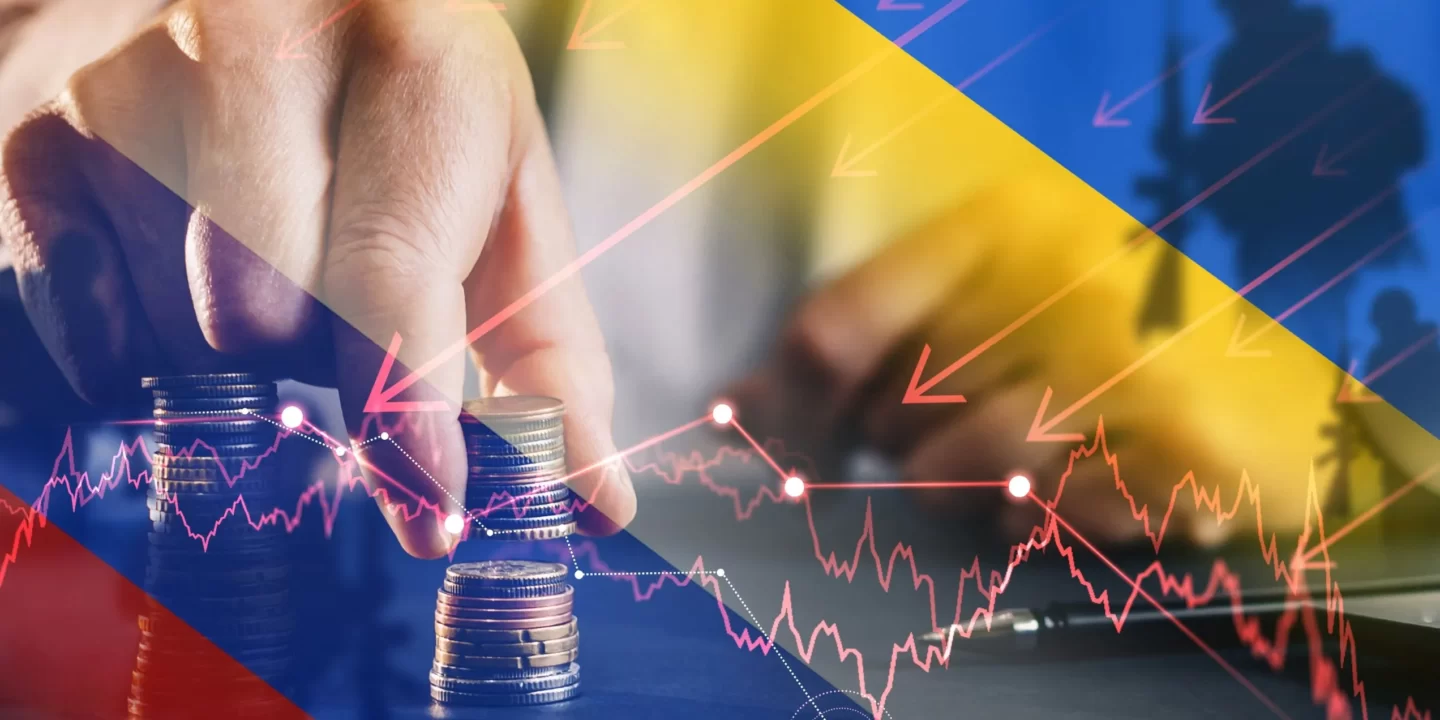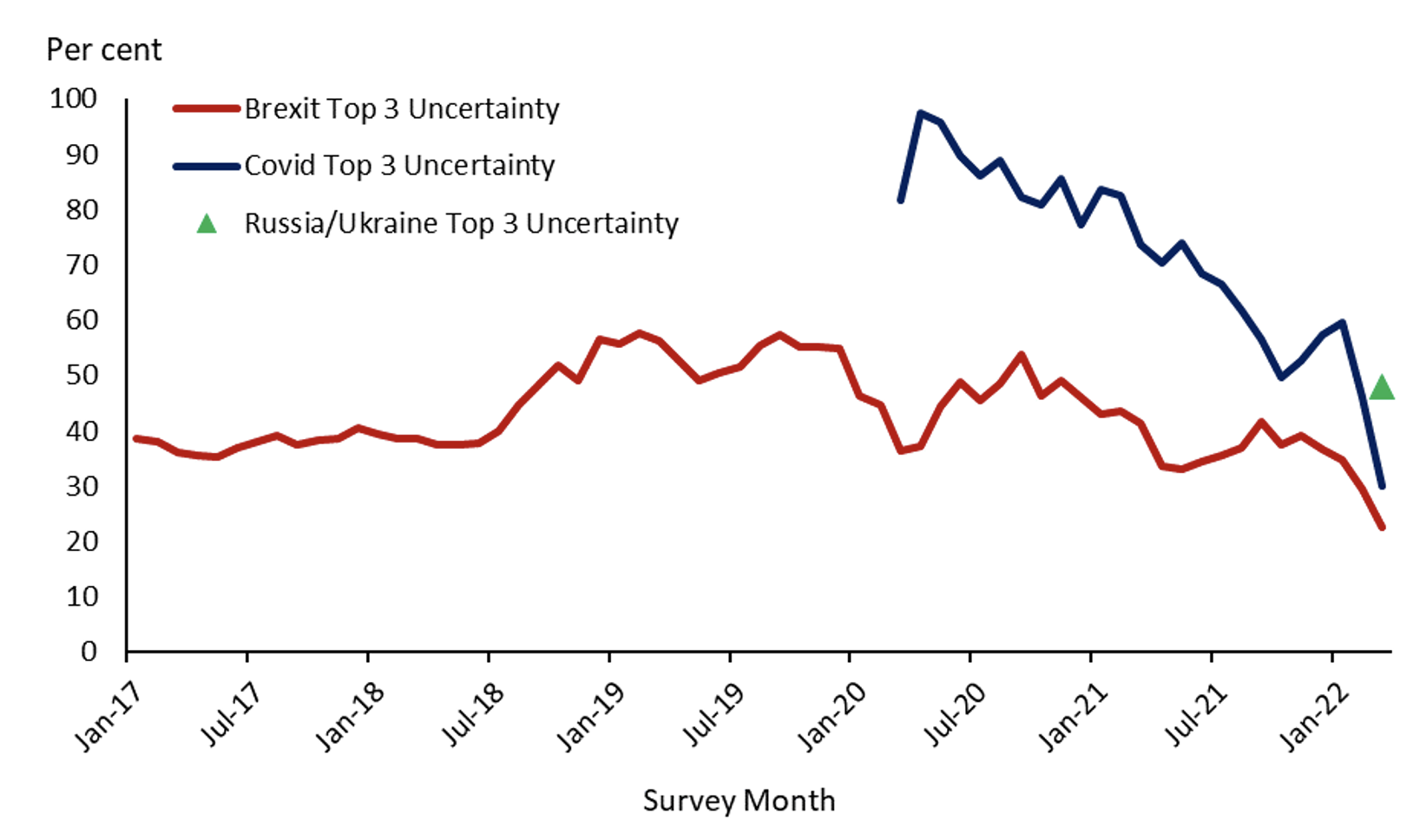В каталоге магазина в Москве представлен большой выбор одежды и снаряжения. [url=http://specodegdaoptom.ru/]магазин спецодежды рядом со мной[/url] Смотрите по ссылке -…

The global economy is in a state of uncertainty, turbulence, and geopolitical danger due to Russia’s invasion of Ukraine on February 24, 2022, which has sent the world’s financial markets into a spiral in a number of nations. Because of the unpredictability of the volatility in the global financial markets, millions of investors have suffered irreversible losses in their wealth. These investors are scrambling to preserve their portfolios, even if doing so requires them to take a loss. The growing global inflation, worry of the US Federal Reserve reducing liquidity, and rising interest rates were already producing anxieties in the global financial markets when another catastrophe rocked the world economy.
As a result of the impact of multifaceted sanctions on Russia, the fear of a redistribution of foreign inflows from emerging markets to western financial markets has increased. This is occurring at a time when western financial markets are dealing with the most severe consequences of the Russian invasion of Ukraine. The lingering effects of Covid19 had not even begun to abate when another man-made diplomatic dispute reached the world, which, all at once, added another round of uncertainty to disturb the resuscitation process.

The disconnection of Swift messaging services for some of the leading Russian banks is not only causing concern among business owners in Russia’s home country, but it is also having an effect on economies in other countries that have robust commercial ties with Russia. This gives the sanctions an additional degree of severity. Some of them are mulling about the possibility of making payments in rubles to nations with whom they have more robust relations and who have more natural trade inflows and outflows. Because Visa and Mastercard will no longer be operating in Russia, there will be a significant disruption to the interoperability of payment systems for card holders who are affiliated with these companies.
Repercussions for the country’s various financial markets
As a result of the active association of a significant number of foreign institutional investors (FIIs), local stock markets are easily swept away by tremors and shocks emanating from the external sector. In October 2021, the BSE Sensex reached its highest point of 61766; however, on March 7, 2022, it dropped to its lowest point of 52843. The index has fallen by 14.4 percent since it reached its all-time high, and it has fallen by 9.3 percent when compared to the previous year (YOY). The NSE-Nifty reached its highest point of 18477 in October 2021, and it has since fallen to a current value of 15863 on March 7, 2022, representing a decline of 14.14 percent over the course of the year. Even when compared to the 7th of February, the BSE Sensex fell from 57621 to 52543, recording a loss of 8.81 percent, and the NSE Nifty dropped 7.94 percent, causing investors to lose millions of dollars in wealth due to the gyrations in the market. These market gyrations were caused by a conflict that began to develop in early February and culminated in an invasion on February 24. Because there is no indication that the rate of invasion would slow down, it is possible that the losses may be worse. Despite the fact that markets will readjust to the downturn and that global central banks will wait to move towards normalisation in light of the conflict, market uncertainty are likely to intensify in the near future.
A weak rupee in comparison to the United States dollar is another important macroeconomic worry that contributes to an expanding current account imbalance (CAD). If crude oil prices maintain their current high level for the foreseeable future, the rating agency ICRA projects that the current account deficit would increase to 3.2 percent in fiscal year 2023. Bond rates might stay in a range of 7.0 to 7.4 percent throughout the HI of FY23, which would make it more expensive for the government to borrow money in order to fulfil the monetization of the fiscal deficit.

It is possible that the USD/INR cross rate will remain range bound between 76 and 79 until the violence has subsided and forex flows have been managed. Exporters are being exposed to unprecedented levels of currency rate risk as a direct result of the persistent devaluation of the rupee. At its all-time low point, the exchange rate was 77 rupees to one dollar. During the year 2022, the Korean Won decreased by 3.02 percent, the Philippine Peso decreased by 2.25 percent, the Taiwan Dollar decreased by 2.10 percent, and the Singapore Dollar decreased by 1.05 percent. However, the Chinese Currency Renminbi increased by 0.55 percent.
A trajectory of growth:
The Consumer Price Index inflation in India continues to be on precarious footing, jumping to a seven-month high of 6.01 percent in January of 2022. This is barely on the dot of its objective, going up from 5.66 percent recorded in December 2021, and has been in line with market predictions. The wholesale price index, on the other hand, stayed in the double-digit range for the tenth straight month.
Since 2008, crude oil prices have not been this high during a single trading day since Monday, March 7, when they reached a high of US$ 139.13 per barrel before falling to US$ 130.50 later in the day. The West Texas Intermediate (WTI) traded at the US $ 122 mark, and there are indicators that there is a lingering more upward risks to inflation if Russia does not sell crude oil and OPEC does not raise supplies. This would be the case. Even while sanctions do not apply to crude oil at this time, there is growing support for a policy that would prohibit nations from purchasing oil from Russia. Due to the fact that Russia is the third biggest oil supplier, its exclusion from the supply pool might cause prices for energy to reach previously unimaginable levels. The analysts at Goldman Sachs anticipate that the price of crude oil will skyrocket to a high of US$150 a barrel, which would cause tremendous worry among nations that import a significant amount of oil such as India.

Despite this, the National Statistical Office (NSO) believes that the Gross Domestic Product (GDP) grew by 5.4 percent in the third quarter, and they predict that GDP growth for the fiscal year of 22 would total 8.9 percent. ICRA, on the other hand, forecasts GDP growth of 8.5 percent, while India Ratings (Ind Ra) estimated 8.6 percent growth. These data have the potential to take a turn for the worse if the war situation does not improve and inflation soars well over the objective set by the RBI, as well as if input prices increase. Even while consumer sentiments are on the increase and the opening up of the economy after a sluggish third wave is in full gear, the external sector still has the potential to stifle growth headwinds in a significant way.
The way to proceed:
At the upcoming monetary policy meeting, the Reserve Bank of India (RBI) may have to reconsider its next plan of action in light of the views of Dr. Jayantha R. Verma, a member of the Monetary Policy Committee (MPC), as well as the evolving upside risks to inflation, exchange rate volatility, and the impact of sanctions. The dangers of conflict are not limited to Ukraine and Russia in today’s more linked globe; rather, it has considerably greater consequences on the economy of other countries.
In the end, there is no victor in a conflict. The loss of life, property, and means of subsistence is an unavoidable consequence of armed conflict; the economic effects of this destruction will be felt for a considerable amount of time to come, leaving many people in a state of abject poverty. Even now, the vengeance of Covid19 is being visited upon us.
The leaders of the world should meet together not to debate the severity of the sanctions, but rather to brainstorm potential solutions to the problem and put a stop to the chaos. To put an end to the problems, diplomatic channels should be utilised to conduct discussion, negotiate, try to persuade, and arrive at solutions that are agreeable. The escalation of sanctions against one nation wreaks havoc on the economies of other dependent nations and upsets the delicate balance of power in the international system. Protracted military wars will make the situation for innocent nations and the people living in them far more dire.


